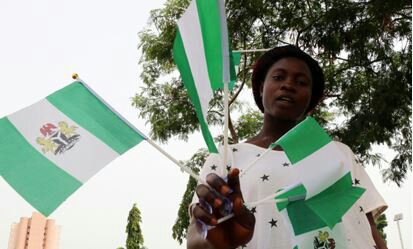News
Human Dev’t Index : World Bank Ranks Nigeria 152nd Out Of 157 Countries
Many African countries are in the red Zone of the Human Capital Project including the acclaimed giant of Africa, Nigeria.
The World Bank has ranked Nigeria 152nd out 157 countries captured in its maiden Human Development Index, HDI.

The President of the World Bank Group, Dr. Jim Yong Kim, disclosed this at the on-going Annual Meetings in Bali, Indonesia, which is focused on two key development issues, climate change and human capital development.
His words, “Nigeria unfortunately ranks 152nd out of 157 countries in Human Development index,” he said in response to a question on the performance of Nigeria in HDI.
Nigeria, like many other African nations, the World Bank boss said, was in the red zone because the country’s health and education budgets were too low.
His words, “Many African countries are in the red Zone if you see table 2 in the Human Capital Project.
“This is a very loud message to Africa. Africa needs to invest massively in education. The message here is that Heads of State and Ministers of Finance have to take responsibility.
“There is so much waiting for the grants to come. We wait and the activists will help us to tell the donors ‘we need more money, we need more money’. What happens is that in many African countries, if they don’t receive grant, they simply don’t spend on health and education.
“So we hope that this is a loud wake-up call for the African countries and especially, Nigeria.
“We provide quite a bit of support to Nigeria in terms of its health budget. But we feel that the overall spending on health is just too low. Just 0.76 per cent of GDP.
“The education outcomes in Nigeria are very poor and Nigeria is one of the most important countries not only in Africa but the world and we feel that they should go on a different level altogether in terms of their commitment to investment in human capital.”
Kim admitted that the World Bank was wrong in its emphasis on hard infrastructure above human capital investment in the past and that emphasis has now changed to priority in human capital development.
He said, “I think the World Bank has to take responsibility for emphasising hard infrastructure – roads, rails and energy for a very long time.
“That changed 20 years ago but there has been the bias that says, “you know we will invest in hard infrastructure and then when we grow rich then we will have enough money to invest in health and education.
“We are now saying that is a wrong approach. You have got to start investing in your people right now. Of all the reasons, why you need to do that is that the rapid change in technology, in fact all the low-skilled jobs will be eliminated.
“Nobody is quite sure how long that will take but a child born today, in twenty years certainly, many of the low-skilled jobs today will be gone and the requirement for this child to earn income throughout his entire life is simply going to get higher.”
Kim commended Indonesia, which he said, has enjoyed strong economic growth and currently making significant advancements in its efforts to end extreme poverty.
Follow us on social media:-

 News1 day ago
News1 day agoVideo trends as Nigerian lady transforms face into Jesus Christ with makeup (Watch)
-

 News1 day ago
News1 day agoFarmer k!lled, three siblings and one other severely injured as bomb explosions rock Niger state community
-

 Crime1 day ago
Crime1 day agoLady swaps old woman’s ATM card while pretending to help, steals N2M
-

 Celebrity Gossip & Gist1 day ago
Celebrity Gossip & Gist1 day ago”I’ve slept with 30 women this year” – VeryDarkMan reveals, advises men to settle down with one woman and take care of her (Video)


